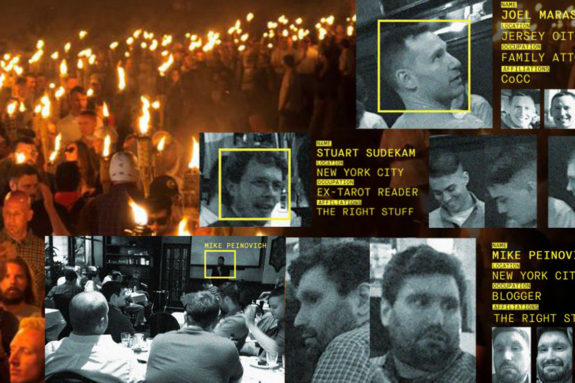For a life of the mind worth living.
According to the Council of Graduate Schools, nearly 2.2 million people applied for admission to US graduate programs in 2018. Many of those students will enroll in large public research universities, where they must form critical relationships with the faculty members who, in addition to acting as mentors, will exercise unparalleled control over the early stages of their professional careers. Like most of those graduate students, my cohort of University of Wisconsin history students enrolled in the same mandatory orientation class our first semester in Madison. Instead of embarking on a systematic overview of the graduate handbook, the document that effectively constituted a binding contract to which we had each agreed upon enrollment, at every class meeting we introduced ourselves and listened to a guest professor speak about their research. Administrators and faculty members alike emphasized students’ new status as academic collaborators with peers and advisors, extolling the department and its classrooms as a space of open-ended inquiry, but no one bothered outlining the structures that would govern our lives as workers and students in the university. This orientation process, repeated in some form in graduate programs across the country, serves as graduate students’ first, archetypal experience of the modern research university, with talk of initiation into “the life of the mind” and lifelong academic vocation masking the mercenary, neoliberal practices that keep institutions of higher education alive.
Market-oriented rhetoric and design has organized higher education since at least the 1970s. Initially, academic departments treated corporate logic as an external threat, something applied from on high by administrators and consultants. But in the aftermath of the 2008 financial crisis, the academy’s defenders could only deny with increasing feebleness that capitalism had overcome and repurposed institutions of higher learning, often aided by high-ranking faculty and administrators. The market logic operating behind hiring decisions, new building projects, departmental allocations, tuition hikes, and adjunctification only entrenched itself further in the post-crisis years.
Academia has effectively accepted that universities now represent a site for consumption rather than intellectual endeavor. At least as far as undergraduates are concerned, academic departments no longer fight for an alternative to neoliberal educational regimes. Rather than explicitly arming students with the practical and analytical tools needed to challenge the reigning sociopolitical structures of late capitalism, departments tout the “marketability” of their degrees and scrabble in the dirt for funding. The pursuit of “knowledge for its own sake,” reserved for faculty and graduate students who agree to play by the rules, hides the extent to which the university has been domesticated by capitalism. In steadfastly clinging to its belief that knowledge of itself is power and that ideas move the world, the academic establishment has abdicated all responsibility to those whose lives depend upon it.
_____
A largely self-contained community of individuals, academia has historically drawn boundaries, more or less porous, between itself and the public at large. “The life of the mind” involves a conscious disidentification by scholars and other self-imposed exiles from the ordinary world of economic and political struggles, an element the university retains from its origins in the monastic institutions of the Middle Ages. The idea of a solitary search for truth, enmeshed in a community of like-minded individuals, appeals immediately to many people, even if the practicalities of research and writing, not to mention grading student papers and exams, may not. The belief that ideas can change the world, that some measure of truth and objectivity exists, that we can know ourselves through extended meditation and inquiry, are part of the long legacy of the Enlightenment and ancient philosophy, and serve as an image of meaningful freedom and growth for many. Breathing the rarefied air of the most elite universities can be heady, conferring a weight to highly specialized and obscure knowledge often difficult to thoroughly investigate without the sense of purpose and methods lent by elite institutions of learning. Academics fulfill a unique purpose in society, together guarding many of the lessons humans have learned as a species. The admiration and envy that many prospective scholars feel for those who live a life of the mind is understandable. Ivory towers aren’t just the pinnacles from which academics look down, they’re also the intellectual heights that many people aspire to, in one way or another, in their search for ways to develop their full human capacities.
But like real-life castles and ivory towers, universities guard their resources. University libraries don’t lend freely and the databases that host millions of academic articles live under virtual lock and key. Members of the public can’t walk into a lab or sit in on a seminar. And even if they could, the standards of language in academic discussion, which underemphasize readability and legibility as opposed to raw output, unnecessarily raise the bar for participation. In the liberal arts, particularly, efforts to expand sophisticated academic debates into the public forum often meet with disdain instead of good faith criticism, a problem that has some origin in the delinking of academic work from meaningful political practice. “Everyone in this room is elitist, that’s why we’re here,” one professor said during a seminar I took. Graduate students often experience and internalize such attitudes, which only quarantines the academic world further from the many spaces and forms of learning outside it.

The global “Edu-Factory Collective,” a decentralized, mostly web-based organization of radical students and academics that formed in the aftermath of the 2008 crisis, posits a continuity between the university and the factory of the twentieth century. Where factories once created the physical commodities that fed twentieth-century capitalist economies, universities now produce a new type of “knowledge worker” upon which modern, post-Fordist information economies depend. Conflicts over the control of universities will be as violent and significant as prior generation’s struggles on the factory floor, they argued. But where the factory system proved a relatively straightforward locus for consciousness-raising and class struggle, the decentralized, highly flexible, and unstable conditions of workers in universities and contemporary offices conceal and disrupt natural bonds of solidarity.
In American research universities, graduate students participate in packaging and delivering knowledge products to undergraduate consumers alongside professors and administrators, and in fact carry out much of the day-to-day grunt work. Yet graduate students face one roadblock after another in the fight to realize their demands as workers and in the larger radical project of wresting control of universities from the hands of capitalists. Graduate students, lecturers, and non–tenure track faculty often find little solidarity from administrators and tenured faculty. Though there’s often no love lost between the professoriate and university government, tenured professors do the bidding of capitalist university governors when they brandish the language of vocation to exploit their charges in the name of nostalgic humanism, though they rarely prove willing to admit doing so. In a 1970 article, historian E.P. Thompson reflected that, faced with rapid corporatization, “we liberal academics were struck with a paralysis of will as the system not only grew round us, but built us into its own body-walls. Once inside there it looked as if we were running our bit of the show: but the show itself was being directed towards other ends.”
Bodily subsumed by the neoliberal university’s class walls, tenured professors seem mostly unable or unwilling to challenge the institutional exploitation of their graduate students and their non-tenured colleagues, who now constitute more than three-quarters of the entire professoriate. In the wake of the 2008 crisis, universities have begun to transition in earnest to an educational model based on networks and outsourcing, accelerating the move towards contingent labor. Virtual classrooms capture far more revenue than face-to-face courses, as software is virtually free beyond upfront costs. And, the contingent faculty and graduate students who teach these classes receive low pay and virtually no benefits. Most graduates from doctoral programs, particularly in the liberal arts, will end up as adjuncts, since only 17 percent of the professoriate was tenured in 2011.
It’s true that when applying for graduate school, many eager undergrads receive advice from their professors urging them to reconsider their career choice because of the tepid job market. But once inside the ivory tower, departments and advisors impose expectations and pursue training programs consistent with future tenure-track positions, because rigorous grad programs attract more graduate students and more funding. As students, professors experienced their own share of oppression and injustice in their graduate programs, but rather than exerting their institutional privilege to negotiate with and for their colleagues, professors brandish their own experiences to justify their complacency towards struggles inside and outside the university.
In addition to providing a film of legitimacy for elitism, the idea of a free, equal, and progressive academic community, united by common vocation, also rationalizes the sacrifices graduate students make and the exploitative or even abusive relationships they must tolerate. Many graduate students work as teaching or research assistants, concurrently taking classes and producing articles or dissertation chapters. At my former workplace, the University of Wisconsin’s Teaching Assistant Association has recently mobilized to demand better workplace protections and pay for TAs and RAs, who work at the whim of supervisor-professors who simultaneously control their future job prospects. When professors shirk or fail in their responsibilities, it’s often up to graduate students to carry out those tasks. A tenure track professor can risk bad evaluations if their workload becomes impossible. But a graduate student or contingent teacher, who must show proof of “teaching success” to gain any employment, whether permanent or not, cannot do so without endangering their livelihood.
Most research and teaching assistants have stories about picking up slack for their professors, some amount of which seems permanently baked into the job. TAs spend course sections, office hours, and their own time covering new material as well as clarifying the lessons of professors who often refuse to do such work themselves. During my last semester at University of Wisconsin, Madison, I took over advising for a student who found that the professor in charge of her senior capstone course, always distant, had disengaged from her project entirely. My work, and the similar work of countless other contingent laborers, performed entirely out of responsibility towards students, went virtually unacknowledged. Unpaid and underpaid graduate labor brings in tuition revenue for universities, but grad students don’t see workplace protections or higher pay as a result. The hours spent developing course plans go unpaid, and teachers might learn that their course was cancelled a couple of weeks before the start of term. When classes don’t fill, universities retain rights to lecturers’ course plans and pay nothing for the development process.
Professors also hold their students’ professional careers in their hands, saddling them with complex expectations and sometimes unpaid work through the mentorship process. As part of the unique relationship between graduate students and their advisors, professors have the power to change what they expect of students virtually on a whim. Academic handbooks might spell out basic expectations, but professors can decide whether or not they want to abide by the rules. The history department at UW had ended the practice of master’s defenses the year I enrolled, but I found myself in a defense anyway, as did at least four others in my cohort. The practice, supposedly abolished, nevertheless managed to deeply affect several of my colleagues’ academic trajectory, as well as my own. Similarly, professors have long had the ability to lean on the research of their students, by subtly “claiming” topics as their own, by disagreeing with their students’ interpretations, and by blocking students’ proposed research topics. A friend of mine spent a year writing grants for research funding, preparing for preliminary exams, and developing a dissertation proposal. As they were preparing to leave the country for extended research, having passed their exams and received substantial funding, their advisors scrapped the dissertation proposal.
The process of obtaining an advanced degree is also the process through which graduate students’ radical identities are squashed. The idea of academic work as a “labor of love” masks a culture of workaholism and camouflages many students’ ever-constricted ambitions. Ultimately, intellectual specialization compounds the conservatism of academic hierarchies. The result is profound compartmentalization and a kind of moral blinkering: professors who call themselves Democratic Socialists can ignore the demands of graduate student and adjunct unions for fair wages and basic labor protections. All the humanist rhetoric in the world cannot protect students from a race to the bottom which, while not generated by professors themselves, occurs with their tacit acceptance. In the end, advisor–advisee relationships mirror manager–worker relationships, disguised by a thin film of idealization and glamorization. At UW, there was a culture of stress-induced drinking and some drug use. Among my friends and colleagues, almost no one felt they could be honest with their advisors about feeling burnout. When I expressed hesitation about a fellowship to which my advisor told me to apply, the professor referenced the consequences of such a mentality to my career, and asked me to reflect on the proper work-life balance. Concern about one’s personal life and family only represented weakness and a lack of commitment.
Ultimately, universities sell degrees, not specific knowledge about history, sociology, or political science. In the humanities at least, the only people looking to consume knowledge for its own sake are those who already believe academic life is their calling, and they’ll become Higher Education Inc’s newest employees. Insofar as elite academics seek to separate abstract and non-commercial humanist values from university corporatization and other contemporary political issues, they provide a fig leaf for the capitalist meat grinder that churns through the labor of graduate students and adjuncts. No trojan horse is so appealing as one which smuggles exploitation in the guise of intellectual prestige.
Academics who attempt to make radical social and political critiques in their writing but fail to confront their role in propping up an exploitative system do the work of the capitalist management class. Rising adjunctification is the logical consequence of higher education’s offshoring efforts. In defending academic life as a non-partisan, non-commercial “calling,” fundamentally separate from contemporary political and social struggles, academics allow the institutions they serve to use their work as a honeypot, drawing in the young scholars who will feed the adjunct pipeline. Meanwhile, individual students and faculty working their way through academia continue to experience a naturalized dissociation from labor and social justice, as academic-life-as-vocation supplants the ideological imperative to engage in struggle that would otherwise drive those who study culture, politics, and society.
The impossibility of truly containing knowledge has been borne out by modern networks, which allow instantaneous information-sharing, and by the cooperative nature of many internet communities, specifically those based around noncommercial, open-source applications. The Edu-Factory Collective points at the potential for education for everyone who wants it. As we move into a new wave of unstable capitalist development, the “universal educated person” can replace the industrial proletariat as the social archetype of our era. Most people, certainly in the United States, now live in a fully networked, interconnected world, where much otherwise copyrighted and commodified information can be accessed for free if you know where to find it. Academic vocationalism is the other side of the capitalist desire to cordon off access to information. When professors use narrow definitions about academic life and vocation to shape their student’s careers, they reinforce the idea that an elite cadre of specialists should control access to information.
In his Fragment on Machines, Marx argued that measuring technological advancements also measures the degree to which “general social knowledge has become a direct force of production, and to what degree, hence, the conditions of the process of social life itself have come under the control of the general intellect.” We should expand the power of the general intellect, not constrain it. Professors will need to give up their privileged positions and join the rest of the new proletariat. To confront the capitalist university system professors cannot “work from within the system.” They must help pull down the ivory tower themselves.





